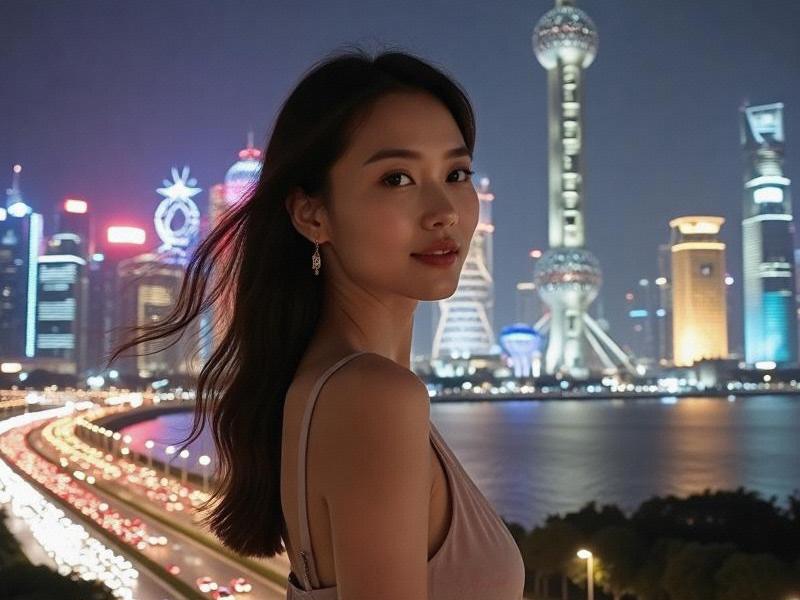The Velvet Rope Revolution: How Shanghai's Elite Clubs Are Redefining China's Nightlife Economy
⏱ 2025-06-18 00:59 🔖 上海龙凤419
📢0℃

Shanghai After Dark: The New Rules of Engagement
Behind the tinted windows of Shanghai's most exclusive addresses, a quiet revolution is reshaping China's entertainment landscape. The city's premium clubs have evolved into complex ecosystems where global business meets local culture under carefully curated conditions of discretion and luxury.
Historical Transformation Timeline
- 1980s: First KTV establishments emerge as basic singing rooms
- 1990s: Japanese-style "snack bars" introduce hostess culture
- 2000s: Anti-vice campaigns force first wave of industry consolidation
- 2012-2017: Anti-corruption crackdown eliminates 60% of high-end venues
- 2020s: "New Luxury" concept emerges with emphasis on experiences over ostentation
The 2025 Market Landscape
Industry statistics reveal:
- ¥12.8 billion annual revenue from premium clubs
- 83% of Fortune 500 China HQs maintain corporate memberships
- Average group spend: ¥18,500 (before alcohol)
- 72% of venues now incorporate business lounge facilities
上海品茶论坛
Four Pillars of Modern Shanghai Club Culture
1. The Executive Entertainment Complex
Multi-floor venues combining KTV, cigar lounges and negotiation rooms
2. Cultural Hybrid Spaces
Where Peking opera performances segue into jazz cocktail hours
3. Membership Cryptoclubs
Blockchain-verified entry systems for ultra-high-net-worth individuals
4. Themed Experience Environments
From 1930s Shanghai nostalgia to futuristic digital art spaces
Operational Innovations
Cutting-edge club features:
上海品茶网 - AI-powered language translation systems in private rooms
- Dynamic pricing algorithms for peak hour services
- Biometric payment systems using facial recognition
- Air quality control systems maintaining optimal oxygen levels
Regulatory Tightrope
Current compliance challenges:
- Strict 2am closing time enforcement
- 40% alcohol tax on imported spirits
- Mandatory surveillance camera coverage
- Periodic "moral hygiene" inspections
The New Business of Pleasure
Revenue breakdown:
- 55% beverage sales (premium cognac dominates)
- 30% room/table rentals
上海品茶工作室 - 10% membership fees
- 5% concierge services (gifts, transportation etc.)
Cultural Significance
These venues function as:
- Alternative boardrooms for cross-cultural dealmaking
- Social proving grounds for China's new elite
- Laboratories testing boundaries of acceptable entertainment
- Bridges between Chinese and Western business customs
Future Trends Emerging
- "Green luxury" concepts emphasizing sustainability
- Virtual club extensions through metaverse platforms
- Increased female executive membership (up 42% since 2022)
- Health-conscious menus featuring premium teas and tonics
Shanghai's entertainment clubs now represent far more than nighttime diversion - they're crucial infrastructure for the city's global business ecosystem, offering a unique window into China's evolving social contract between pleasure, power and propriety.
The Shanghai Equilibrium: How China's Most Cosmopolitan Women Balance Tradition and FuturismShanghais Development in Technology InnovationShanghai’s Regional Symphony: Where Metro Core Meets Ancient Waterways in the Yangtze DeltaQuantum Leap: How Shanghai's 30-Minute Metropolitan Circle Is Redefining Urban CivilizationShanghai Reimagined: Where Futurism Meets Heritage in China's Global MetropolisShanghai & Its Satellite Cities: The Engine of China's Most Dynamic Economic Zone从石库门到梧桐树:上海美女的"成长叙事"与城市温度Shanghai, City of DelightThe Algorithmic Playground: How Shanghai's Entertainment Venues Are Redefining Urban Leisure《科创走廊启示录:上海张江与苏州BioBAY的双城实验》

